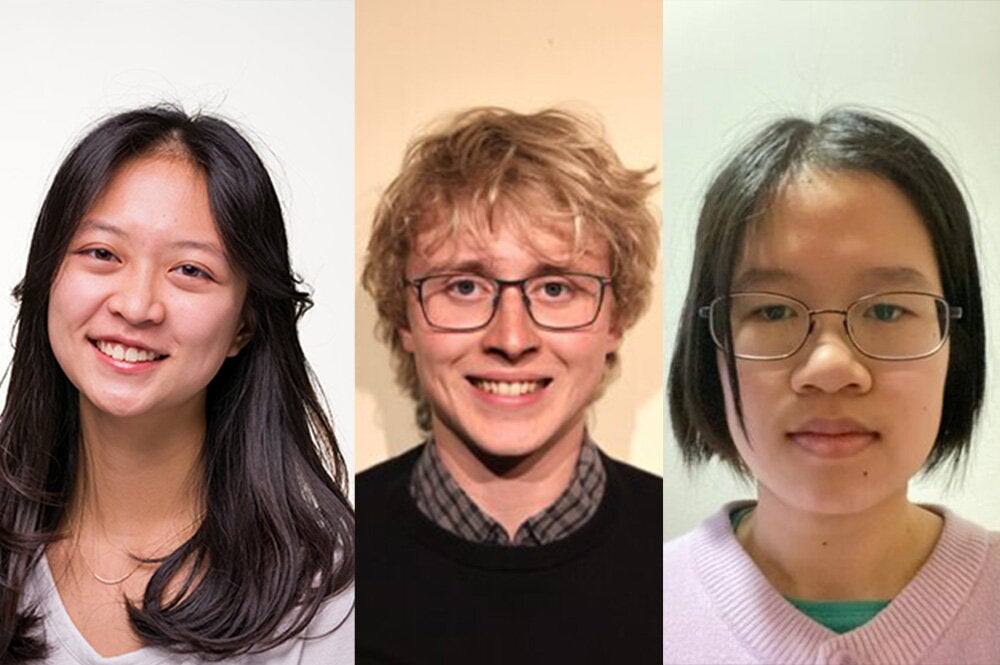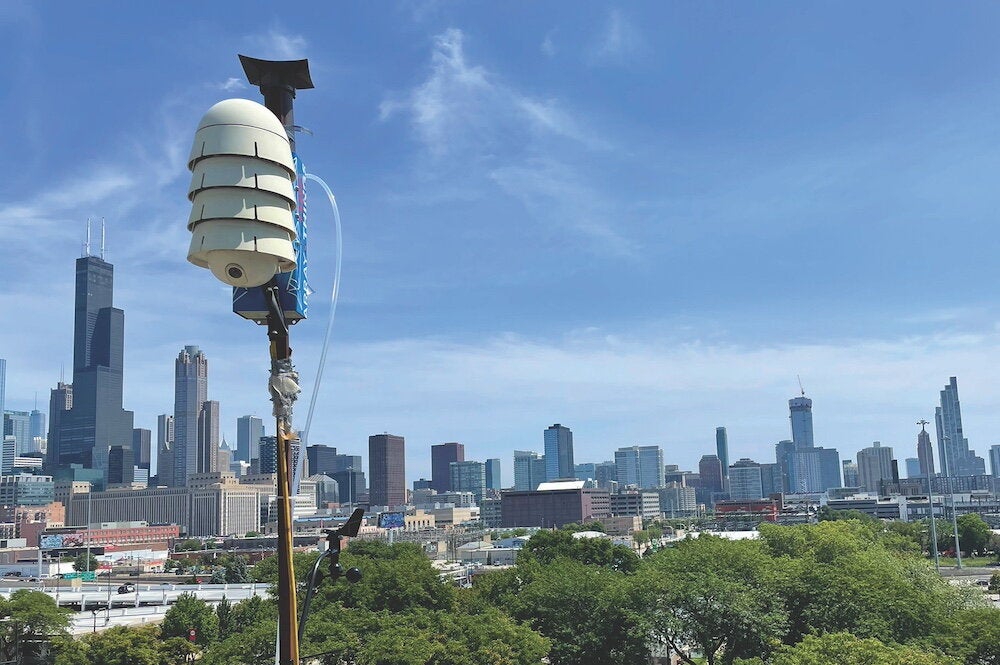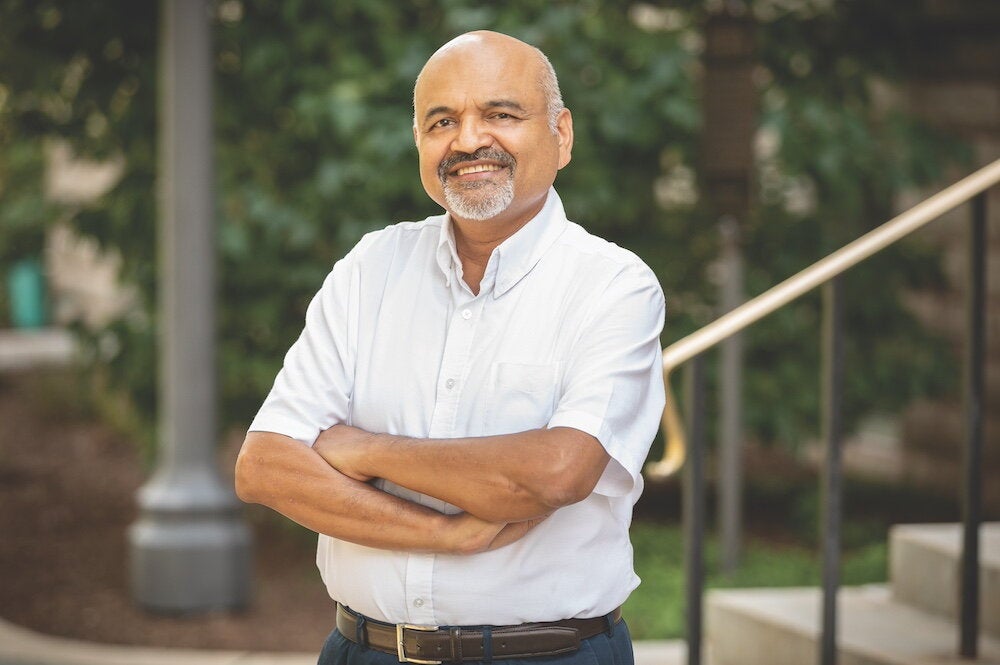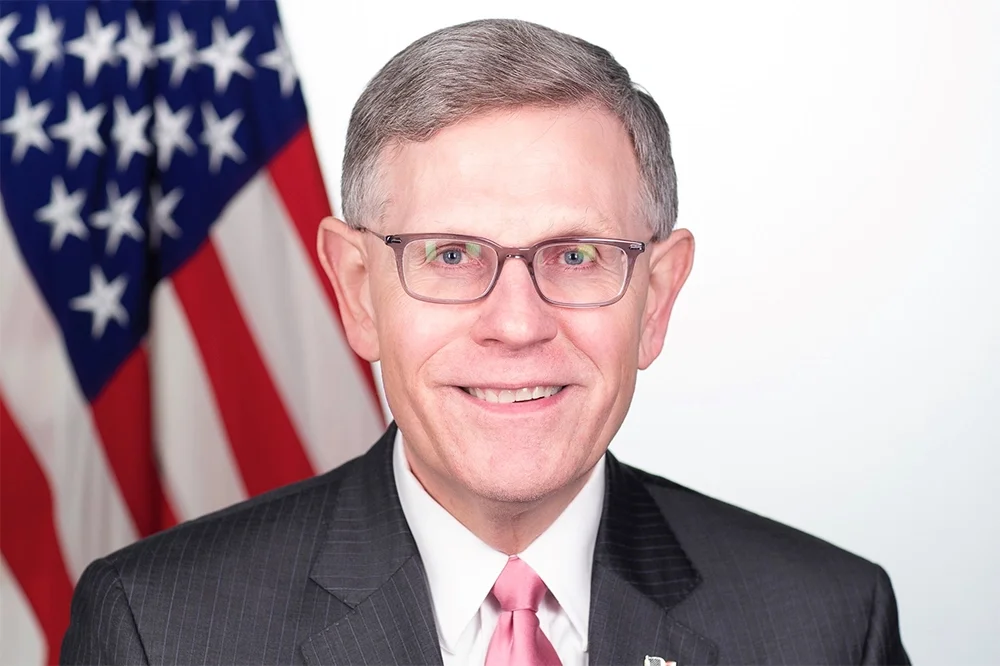
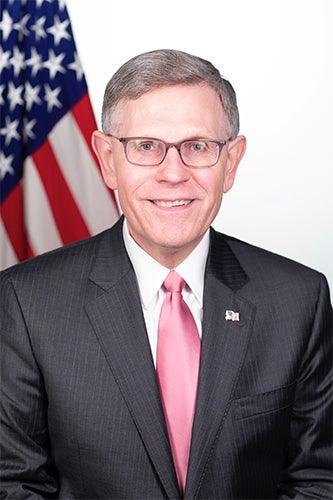
Kelvin Droegemeier, a research meteorologist who previously held several national science and policy leadership roles, is joining the faculty of the Department of Atmospheric Sciences at the University of Illinois Urbana-Champaign on Aug. 16. He also will hold a special advisory position in the Office of the Chancellor and will support strategic efforts for the University of Illinois System.
“It’s always exciting to welcome new faculty members—and their energy and ideas—to our campus community,” said Venetria K. Patton, Harry E. Preble Dean of the College of LAS. “Illinois is already a research powerhouse, and the addition of Dr. Droegemeier has the potential to spark new interdisciplinary collaborations and elevate our entire research enterprise.”
Droegemeier currently is the Regent’s Professor of Meteorology, Weathernews Chair Emeritus, and Roger and Sherry Teigen Presidential Professor at the University of Oklahoma, where he has been a member of the faculty since 1985. He previously served as the University of Oklahoma’s vice president for research from 2009 to 2018 and founded and served for five years as director of the Sasaki Institute, which fostered the development and application of knowledge, policy, and advanced technology for societal impact. He served as chair of the Association of Public and Land Grant University’s Council on Research Policy and Graduate Education (now the Council on Research) and is a fellow of both the American Meteorological Society and American Association for the Advancement of Science.
Drogemeier’s federal science and policy leadership roles include serving on the National Science Board from 2004 to 2016, the last four years as vice chair, and directing the White House Office of Science and Technology Policy from 2019 to 2021. Concurrent with his leadership of OSTP he also served as acting director of the National Science Foundation for two and a half months in 2020. At the state level, he was appointed to the Oklahoma Governor’s Science and Technology Council, serving from 2011 to 2019, and as Cabinet Secretary of Science and Technology from 2017 to 2019.
In the Department of Atmospheric Sciences, Droegemeier will teach and mentor students and continue his research into severe weather, particularly the dynamics and predictability of severe thunderstorms and tornadoes. He is a pioneer in the numerical forecasting of storms, having led early development of the world’s first computer model capable of predicting small-scale weather phenomena, such as individual thunderstorms. Much of that work was performed on computing systems operated by Illinois’ National Center for Supercomputing Applications, where Droegemeier served for many years on the resource allocation board. He co-founded the NSF Science and Technology Center for the Analysis and Prediction of Storms and directed the center from 1994-2006; in 2003 he also co-founded the NSF-backed Center for Collaborative Adaptive Sensing of the Atmosphere and served as its deputy director for six years.
Atmospheric Sciences head Jeff Trapp said that Droegemeier’s research fits well with the department’s focus on weather and climate risk.
“We have a long tradition of research on hazardous weather, but we’re also passionate about understanding the impacts of such weather and climate on society and how we can use our knowledge to support resiliency and lead to a safer and more prosperous state and nation,” Trapp said. “Dr. Droegemeier’s experience and his success in leadership of centers and institutes of excellence aligns with that focus and has the potential to take our research enterprise to the next level.”
Droegemeier, who earned his master’s (1982) and PhD (1985) in atmospheric sciences from the University of Illinois, is excited to be returning to a university and community to which he has a strong historical connection.
“Coming back to U of I will be just like coming home. I’m looking forward to investing my heart and soul in a place that has very special meaning to my wife and me, as she also has graduate degrees from the U of I. It’s part of our family, our DNA, and our hearts,” said Droegemeier. “Illinois is one of the top universities on the planet. It’s got extraordinary leadership, extraordinary faculty and facilities. And there’s a deep history and legacy of innovation; there’s no shortage of big ideas on campus.”
As special advisor to the chancellor for science and policy, Droegemeier will advise the chancellor and other university leaders on federal initiatives, policies, and strategic opportunities in the broad areas of sustaining climate, predicting climate shifts, and ensuring resiliency of our ecosystems. He will collaborate with campus, local, and state stakeholders to develop partnerships that help position the university as a global leader in climate resiliency.
“We are committed not just to building a resilient and sustainable university but also to creating transformative solutions for society,” said Chancellor Robert J. Jones. “I’m excited that Dr. Droegemeier shares this vision for how our university can change the world for the better.”
As special advisor, Droegemeier will work closely with the Office of the Vice Chancellor for Research and Innovation.
“Dr. Droegemeier has spent decades investigating complex weather systems and their impact on society—profound work that beautifully aligns with the university’s land-grant mission,” said Susan Martinis, Vice Chancellor for Research and Innovation. “That perspective, and his track record of service on the National Science Board, at the White House, APLU, and the National Science Foundation, will be incredible assets to our cross-campus strategies in research and innovation. We are delighted to welcome Kelvin to the Illinois research community.”
Droegemeier also will support the University of Illinois System with federal and state initiatives related to sponsored research, economic and workforce development, and science policy. In this role, he may be engaging with the University of Illinois Chicago, the University of Illinois Springfield, and Discovery Partners Institute as well as the University of Illinois Urbana-Champaign.
